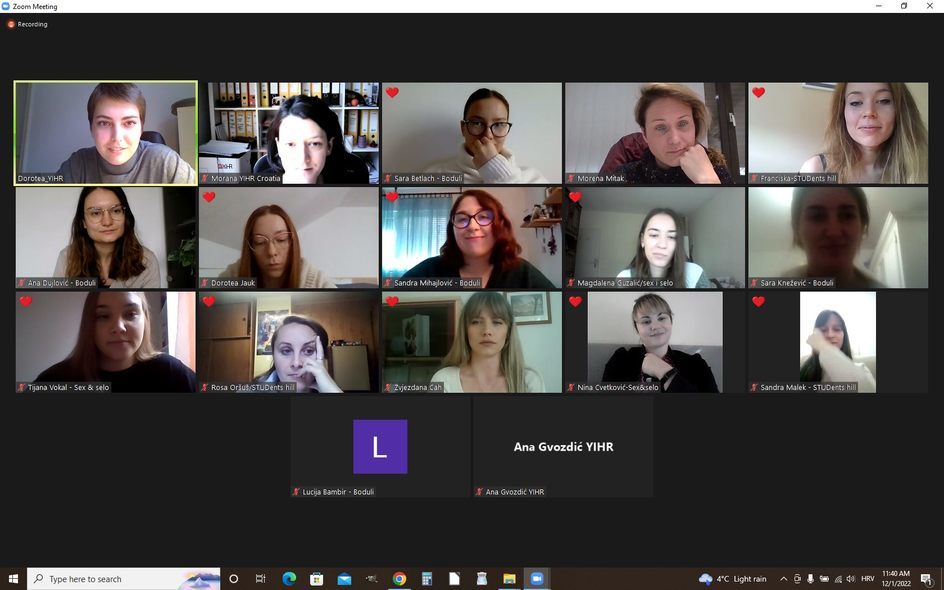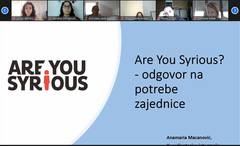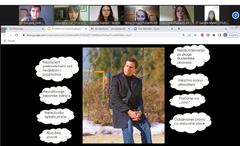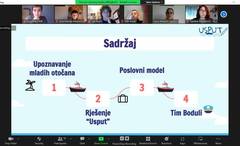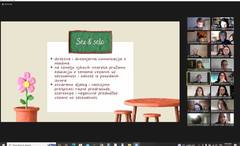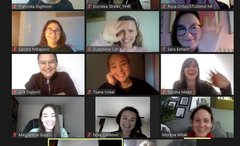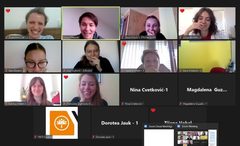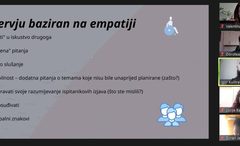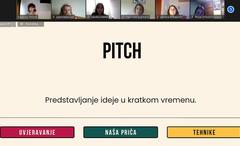The fifth iteration of the online learning program Social Innovation Practitioner has come to an end as of Thursday, December 1, 2022. This free program was designed to give young NEETs the information and skills they need to develop their own social innovations. The program was completed by more than 130 participants, the majority of whom were between the ages of 21 and 30 and were in their last years of social and humanities degrees. Participants from each generation worked 150 hours to identify societal issues and develop creative solutions to address them in order to bring about positive social changes. The education was conducted via the Zoom platform. The project's objective was to make social innovation more approachable to young people and provide them the opportunity to pitch their developed ideas in front of their peers and an expert jury at the program's ending.
The last iteration of the program began on September 27, 2022, and from that meeting until the beginning of December, young participants attended online meetings on Tuesdays and Thursdays.
Participants gained the theoretical knowledge, followed by the practical skills and attitudes, needed to produce their own social innovations, through the five modules that were held. The program included guest lecturers from the private sector and civil society who spoke to the participants about successful examples of social innovation, migrant inclusion, research methods, design thinking, all phases of project management, creating a project plan, and developing a communication and advocacy strategy. This was done in addition to the mentoring of team members from the Youth Initiative for Human Rights. Although teamwork was emphasized throughout the whole program, shorter individual examinations were also completed prior to the start of each new module in order to evaluate student knowledge for each of the theme components. Due to the fact that the entire program was conducted online, interactive digital tools including Mural, SurveyMonkey, Google Forms, Jamboard, and Mentimeter were utilized to improve participant interaction and team communication.
Following the introduction module, when students learned the fundamentals of social innovations, there was a period of intense, hands-on teamwork in smaller groups where students chose to build innovations to solve social problems. According to their interests, the participants chose the issues they will work on. The groups in this generation chose to address the following issues:
- violation of the labor rights of students who perform student work in addition to their studies (STUDents hill group)
- lack of sexual education for adolescents in smaller communities (Sex& the village group)
- lack of quality facilities for young people who travel by ferry from the island to the mainland for schooling (Boduli group)
The teams were required to complete homework as part of the program, which they would then discuss as a large group at the following meeting. By receiving feedback on their work, the groups were able to actively listen to one another's thoughts and learn from each other. In order to build not only the abilities required to work in a team but also proactivity and time management, this was also an opportunity to practice collaboration and learn to operate in a group without the supervision of mentors. The three aforementioned teams worked on their concepts up until the final "Pitch," where they successfully presented their social innovations to an external jury (Iva Ružić, Ana-Marija Mileusnić, and Ivan Božić).
The list of this year's lecturers who participated in the program:
Maruša Stamić from Migrant talent garden ZIP
Anamaria Macanović and Lucija Azinović Rebić from Are You Syrious?
Igor Kuštreba and Valentina Gambiroža Staković (DrONe) - Research methods and interviewing based on empathy
Marko Škrobo (Apsolon) – Design Thinking
Diana Bekavac (K-zone) – Social Business Model and project management
Katarina Horvat (HORKA) - Storytelling and preparation of pitches
Sven Janovski (Operacija grad) - Communication strategy
Based on all received evaluations of our participants and feedback from guest lecturers and the jury, the educational program proved to be extremely successful, attractive and useful for young people.
The Social Innovation Practitioner program was awarded the SKOCKANO System label - a system consisting of standards and quality criteria for the preparation, implementation and evaluation of non-formal education programs of CSOs.
This program is part of the Social Innovators project, whose goal is to influence the easier employment of young people who have obtained education in the field of social sciences and humanities, and to promote employment in associations as places where young people can learn new skills and knowledge and as an attractive environment for work, study and sustainable contribution to the community. In addition, we want to encourage the development of social innovations with the project.
The Social Innovators project in Croatia is coordinated by the Youth Initiative for Human Rights (YIHR), and the project, as well as the educational program, also takes place in Slovenia and Bulgaria, with the support of expert partners from Norway.
Social Innovators is funded by Iceland, Norway and Liechtenstein through the EEA and Norway Grants Fund for Youth Employment.Together for a green, competitive and inclusive Europe.
The project was co-financed by the City of Zagreb, the National Foundation for the Development of Civil Society and the UZUVRH.
